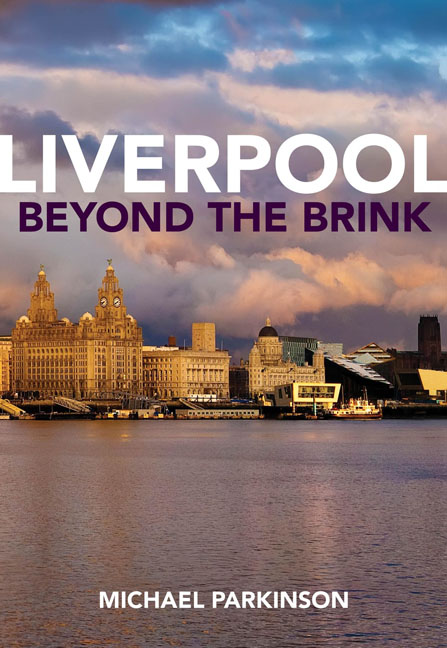Book contents
- Frontmatter
- Dedication
- Contents
- Acknowledgements
- 1 What is the Liverpool story and why does it matter?
- 2 Liverpool goes on – but pulls back from – the brink, 1973–88
- 3 Liverpool begins to become normal, 1988–98
- 4 The rise of the aspiring premier European city, 1998–2010
- 5 Continuing ambition in an age of austerity, 2010–19 99
- 6 The state of Liverpool's economy today
- 7 Liverpool beyond the brink: what are the lessons and what is to be done?
- Index
5 - Continuing ambition in an age of austerity, 2010–19 99
- Frontmatter
- Dedication
- Contents
- Acknowledgements
- 1 What is the Liverpool story and why does it matter?
- 2 Liverpool goes on – but pulls back from – the brink, 1973–88
- 3 Liverpool begins to become normal, 1988–98
- 4 The rise of the aspiring premier European city, 1998–2010
- 5 Continuing ambition in an age of austerity, 2010–19 99
- 6 The state of Liverpool's economy today
- 7 Liverpool beyond the brink: what are the lessons and what is to be done?
- Index
Summary
Liverpool had a very good boom during the first decade of the twenty-first century. It improved its own economic performance and closed the gap on some other UK cities. But even though the city also had a relatively decent bust, austerity and the policies of the Coalition and subsequently the Conservative government had an impact. In fact, in 2010 Liverpool again underlined the peculiarities of its politics when, just as in 1998, city voters threw out of office the party that had just done very well in the national elections. Liverpool returned decisively to Labour in 2010. The subsequent period was marked by three features. The first was the creation in 2012 of the office of an elected mayor in Liverpool. The second was austerity, with a Labour council increasingly hit by cuts in national government resources trying to sustain the economic development of the city that had taken place in the golden age. During this time the Labour leadership and the mayor had to straddle two different horses – trying to maintain economic development while at the same time carrying out the government's austerity programme, which hit hardest the poorest people in the poorest parts of the city. And they were attempting to do so without losing political support in the city or returning to the failed 1980s politics of confrontation. The third feature of this period was devolution and the move by national government to give responsibilities, if not always resources, to local government, with a raft of institutional changes including City Deals and elected city and later city regional mayors and Combined Authorities. This move changed and challenged the face of decision making in Liverpool as in other British cities. This chapter looks at the way in which those forces played out. It does three things. It assesses the performance and impact of Liverpool's elected mayor as he tried to sustain economic development with a commitment to pragmatic rather than gesture politics. It judges how the move to city regional government, including the election of a city regional mayor, worked out in Liverpool. And it assesses the impact of austerity and cuts in government resources to local councils on the city's finances and capacity.
- Type
- Chapter
- Information
- Liverpool Beyond the BrinkThe Remaking of a Post-Imperial City, pp. 99 - 116Publisher: Liverpool University PressPrint publication year: 2019



